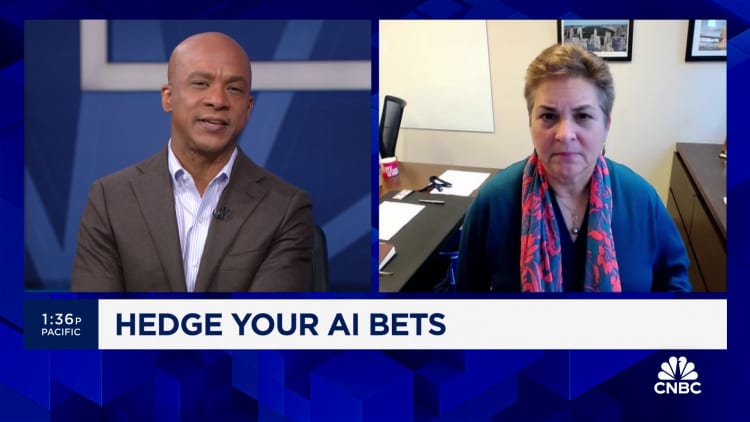Artificial Intelligence: The new technology has taken the industry by storm.
just_super | E+ | Good pictures
The European Union's parliament on Wednesday approved the world's first major regulatory framework to govern artificial intelligence that mediates technology investment.
The European Union brokers an interim political consensus In early DecemberLater Wednesday's session of Parliament saw 523 votes in favor, 46 against and 49 abstentions.
“Europe is now the global standard setting in AI,” European Commissioner for the Internal Market Thierry Breton wrote in X.
The President of the European Parliament, Roberta Metzola, described the move as trail-blazing, saying it would enable innovation while protecting fundamental rights.
“Artificial intelligence is already part of our daily lives. Now, it will be part of our law,” he wrote in a social media post.
Dragos Tudorache, the lawmaker who oversaw EU negotiations of the deal, praised the agreement but noted that implementation remains a major hurdle.
Born in 2021, the EU AI law divides the technology into risk categories, ranging from “unacceptable” – which would see the technology banned – to high, medium and low risk.
The regulation is expected to enter into force at the end of the legislature in May, after passing final checks and receiving the approval of the European Council. After that, implementation will be staggered from 2025 onwards.
Some EU countries have previously supported self-regulation over government-led regulation, amid concerns that the restrictions could hamper Europe's progress to compete with Chinese and US firms in the technology sector. Opponents include Germany and France, which have some of Europe's most promising AI startups.
The EU is struggling to keep pace with the consumer impact of technological developments and the market dominance of major players.
Last week, the Union enacted landmark competition legislation to curb American giants. Under the Digital Markets Act, the EU can crack down on anti-competitive practices by big tech companies and force them to open up their services in sectors where their dominant position has stifled smaller players and stifled users' freedom of choice. Six companies – American titans letters, Amazon, Apple, Meta, Microsoft and China's bidens—have been heralded as so-called “gatekeepers.”
While heavyweight players such as Microsoft, Amazon, Google and chipmaker Nvidia have trumpeted AI investment, there are growing concerns about the potential for misuse of artificial intelligence.

Governments fear deepfakes – forms of artificial intelligence that create false events, including photos and videos – will be used ahead of key global elections this year.
Some AI proponents are already self-regulating to avoid misinformation. On Tuesday, Google announced it would limit the election-related queries it can hear on its Gemini chatbot, saying it had already implemented changes in the US and India.
“The AI Act has pushed the development of AI in a direction where humans are in control of the technology, and the technology will enable innovation to unlock economic growth, social progress and human potential,” Tutorach said. said on social media on March 12.
“AI legislation is not the end of the journey, but rather the starting point for a new model of governance built around technology. We must now focus our political energies on moving from legislation on the books to reality on the ground,” he added.
Legal experts described the move as a major milestone for international AI regulation, noting that it could pave the way for other countries to follow suit.
“Once again, the EU is the first to move forward, creating more comprehensive regulations,” said Steven Farmer, partner and AI expert at international law firm Pillsbury.
“This group moved early in the rush to regulate data, giving GDPR, which we see global convergence,” he continued, referring to the EU's General Data Protection Regulation. “AI legislation appears to be a case of history repeating itself.”
Mark Ferguson, public policy expert at Pinsent Masons, said the passage of the law is just a start, and as fast-moving technology continues to evolve, businesses must work closely with lawmakers to understand how it will be implemented.